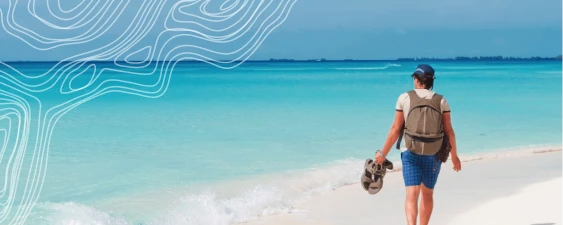
Jump to
What do locum tenens assignments in the Pacific Islands look like? What is included with Pacific Island locum tenens assignments Physician compensation for locum tenens jobs in the Pacific Islands Things to know before leaving on your Pacific Islands locum tenens assignment Reasons physicians choose to work locum tenens in the Pacific IslandsInternational locum tenens assignments in the Pacific Islands with Global Medical Staffing (GMS) are available in both Guam and Saipan and can be in coastal or inland areas.
Locums FAQ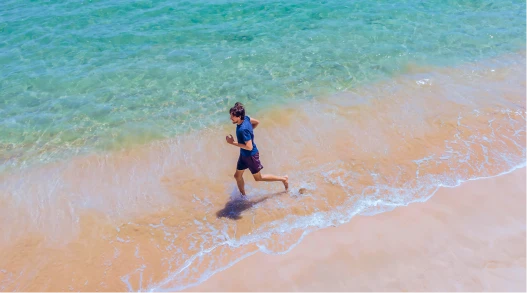
Some are in rural, underserved locations
Some assignments are in metropolitan areas
Assignment lengths are between 3 - 6 months
A typical work week in the Pacific Islands is 40 hours a week plus on-call
All medical settings need locums physicians:
Clinics
Hospitals
Urgent care clinics
The most common physician specialties that are needed in Guam and Saipan include:
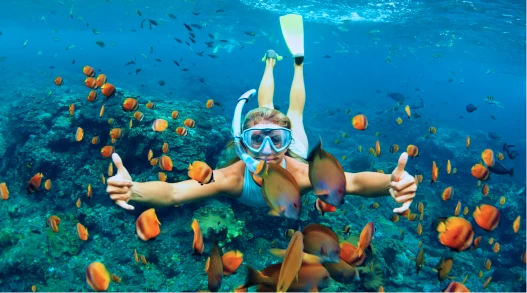
Global Medical Staffing will take care of licensing for you.
Since Guam and Saipan are U.S. territories, no visa is required. You can enter these countries with just your U.S. passport.
Important note: Your passport must be valid for at least 180 days from the time of entry, and you must fill out a completed FSM Immigration and Arrival Record with a completed FSM Customs Form to enter.
Learn more about entry requirements for the Pacific Islands.To reduce the amount of time you spend on paperwork, GMS will assist you with all credentialing and pre-fill applications as much as we’re legally allowed.
Malpractice insurance is provided for all locum physicians working in the Pacific Islands. In Guam and Saipan, for example, the facility provides malpractice insurance, or the physician will be covered under government-provided insurance (similar to Federal Tort). Which malpractice coverage a locum physician in the Pacific Islands receives depends on the facility where they work.
GMS covers the cost of fully furnished housing for each physician
Rental car is provided
GMS provides roundtrip airfare for the physician. If you decide to bring your family along, you will need to pay for your family members’ flights, but GMS can help with the bookings.

The pay rate for locum tenens physicians in the Pacific Islands is lower than in the United States, but Guam is more competitive. Despite the drop in pay, physicians working on the island have found that the beautiful surroundings and top-tier work/life balance make their time there worth it.
GMS pays locum physicians weekly by direct deposit into your U.S. bank account
You'll be paid in U.S. currency
An individual who has income from American Samoa, the Commonwealth of the Northern Mariana Islands (CNMI), or Guam will usually have to file a tax return with the tax department of one of these territories. Information about the U.S. territories can be found at State and Local Government on the Net.
If you have income from one of these U.S. territories, you may have to file a U.S. tax return only, a territory tax return only, or both. This generally depends on whether you are considered a resident of one of the U.S. territories. In some cases, you may have to file a U.S. return, but you can exclude income earned in a territory from U.S. tax. Filing requirements for specific U.S. territories are explained in Publication 570, Tax Guide for Individuals With Income From U.S. Possessions. A qualified tax professional can help you file your taxes correctly.
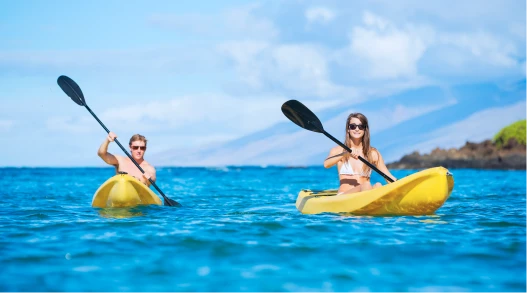
Locum doctors in the Pacific Islands will need to verify with their insurance company whether they’ll have health coverage while on the island.
Physicians should come prepared knowing which medicines are and aren’t available in the Pacific Islands.
Since Guam and Saipan are U.S. territories, there are no stipulations on bringing personal medication. They just need to be in properly labeled bottles. However, there are conditions related to bringing medicine that is a controlled substance. For more information, consult the U.S. Centers for Disease Control and Prevention for information about traveling abroad with medicine.
Since locums assignments are only between 3 – 6 months, it’s not recommended to bring your pet since the quarantine period in Guam and Saipan is 120 days. If you do choose to bring your pet, read these pet import requirements.
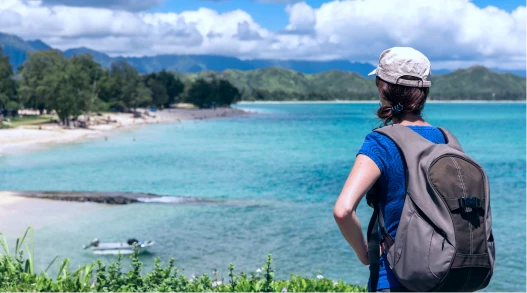
Life in the Pacific Islands is slower paced than in the United States. And with fewer administrative responsibilities, you’ll have plenty of time to explore. You’ll be able to scuba dive, sail, hike, surf, go snorkeling, and enjoy the leisure of island life.
Although the Pacific Islands are primarily rural with smaller towns, a 30-minute flight on your days off will take you to Guam, home of a U.S. naval base with plenty of nightlife, restaurants, shopping, and other bigger-city amenities.
International locums changed my perspective on how I want to spend the rest of my life. I worked fewer hours and spent more time enjoying the natural beauty of our surrounding environment.
— Dr. Carly Hagel, emergency medicine physician
With locums, you can dictate where, when, and how often you work. Your recruiter at GMS will work closely with you to find the perfect assignment that fits your desired schedule.
My shift didn’t start until noon, so my wife and I had plenty of time to explore and relax. We went hiking in the jungle, saw museums, and sat by the pool.
— Dr. Kevin Arnold, anesthesiologist
Know that you are helping underserved communities. Many physicians thrive in rural settings, treasuring the opportunity to give back to those most in need.
Working locums in Guam has changed my life. I’m awake again. It has completely changed my perspective on the way I practice.
— Dr. Holly Llobet, critical and palliative care physician
You get to see parts of the world you may never have considered. Many physicians take locum assignments as a working vacation to places they’ve always wanted to visit — and some even bring their families.
I wanted to take an expedition. I wanted to have more experiences — different climates, locations, and natural phenomena under the ocean and in the sky.
— Dr. Sue Ming, neurologist
Work in different locations, see how other facilities run, learn how other doctors in your specialty practice, and find new ways of practicing medicine.
Guam has a lot of interesting mixes of things you may not see in the States. During residency, you get taught about them, but you never really get to treat them.
— Dr. Brian Zorko, emergency medicine and critical care physician